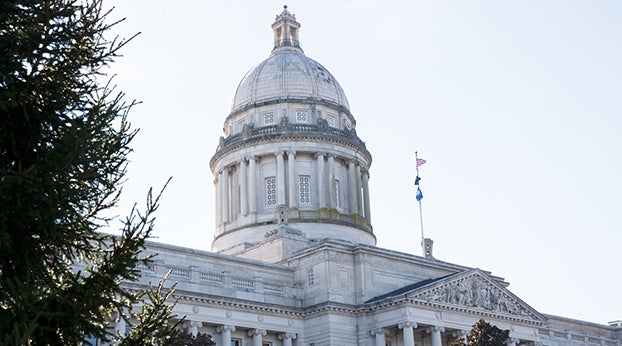Boyle’s general election proves your vote matters
Published 6:16 am Tuesday, November 13, 2018
EDITORIAL
The Advocate-Messenger
The next time someone says they don’t bother to vote because their vote won’t matter, just laugh and respond, “Nov. 6, 2018.”
Not that we needed any more proof that votes do matter — there have been close elections decided by tiny margins ever since we’ve had elections. But last Tuesday night in Boyle County served as a fresh reminder of the importance of your vote.
Boyle County’s next judge-executive, Howard Hunt, won by 17 votes out of 10,759 cast. That means if 18 more people had voted (representing less than two-tenths of a percent), Gary Chidester could have won. It also means if just nine people (representing just eight-hundredths of a percent) had switched their vote, the result would have changed.
In the jailer’s race, it was nearly as close. Brian Wofford got 26 more votes than LeeRoy Hardin, out of 10,670 cast. Notice the difference in total votes cast — a net of 89 people voted for judge-executive but did not vote for jailer. If those people, who were already in the booth voting, had checked a box for jailer, it would have been more than three times enough votes to change the outcome.
In the Danville Board of Education race, a single vote was the difference for the third of three available seats. Glenn Ball edged Aaron Etherington by that one vote, out of 8,867 votes cast, winning by barely one-hundredth of a percent.
Republicans have been celebrating “flipping” the Boyle County Fiscal Court, but the vote totals were close in their magisterial races as well. In two of the three districts where Republicans won, they won with only pluralities, not majorities, thanks to independent candidates that received meaningful chunks of votes.
Tom Ellis won in District 1 with 49.46 percent of the vote. Dickie Mayes was 30 votes behind him and Steve Divine had more than the difference with 51 votes. In District 2, Ronnie Short received 852 votes out of 1,951, representing 49.05 percent of the vote. Donnie Coffman was behind by 254 votes; independent Pete Kendrick got 287.
Jason Cullen won the District 4 seat with the smallest possible majority. Cullen got 1,016 votes; his two opponents, Jack Hendricks and Joe Lamkin, combined for 1,015 votes.
Beyond serving as proof that votes matter and people should bother to participate in their democracy, this general election also shows us that many Boyle County residents are not in agreement on who they want running government. Competitive elections are good for democracy, but they also represent a challenge for those who win: They have been chosen to work for a lot of people who didn’t want them elected.
Handled the right way, this challenge can have a positive outcome — if leaders temper their decisions with wisdom from all sides and resist the temptation to pander to their bases. Handled the wrong way, things can spiral out of control and reasonable disagreements can turn into hostile disputes.
Boyle County is more politically divided today than at perhaps any other time in its history. We hope that’s not simply an echo of the growing, unhealthy partisan divide at the national level. We hope it’s an opportunity for growth and a chance for Boyle County to be a model to the rest of the state and country on how to run government in a cooperative, non-partisan way.





